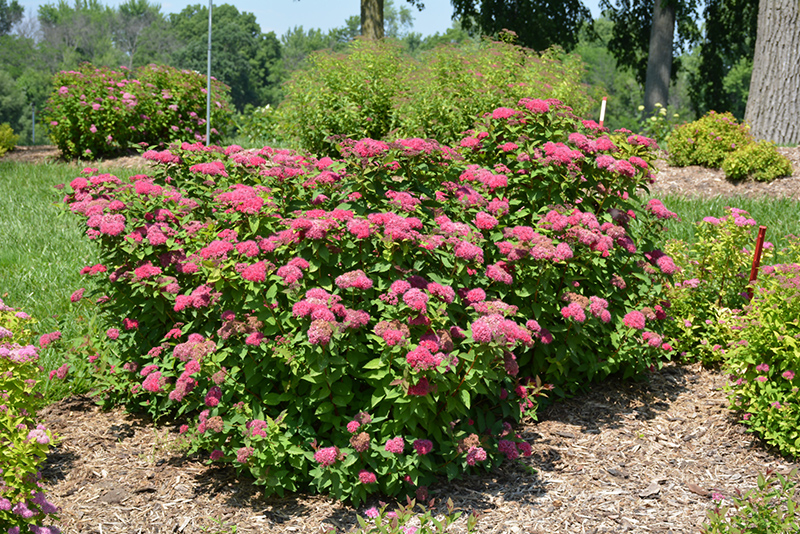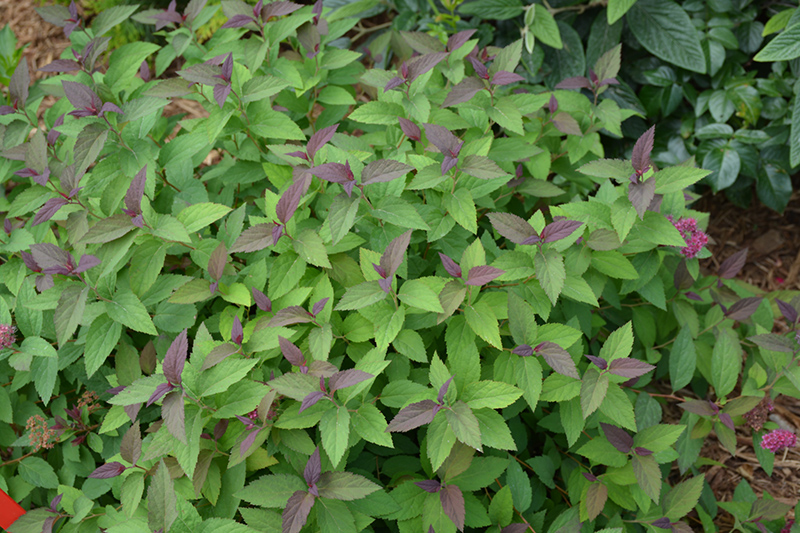Get ready to ignite your excitement and cultivate unforgettable memories
with Wallace's Garden Center Events! We're thrilled to invite you to a world of
enchanting experiences, where every gathering is a celebration of nature, community, and pure fun.
Plant Finder
Double Play® Red Spirea
Spiraea japonica 'SMNSJMFR'
Height: 3 feet
Spread: 3 feet
Sunlight:
![]()
Hardiness Zone: 4
Group/Class: Double Play Series
Brand: Proven Winners
Description:
This variety features dark burgundy emerging foliage that transitions to a rich green; breakthrough red flower color transitions to pink in early summer; has a dense mounded habit perfect for landscapes
Ornamental Features
Double Play® Red Spirea features showy clusters of red flowers at the ends of the branches from late spring to early summer, which emerge from distinctive dark red flower buds. It has forest green deciduous foliage which emerges burgundy in spring. The serrated pointy leaves turn an outstanding brick red in the fall.
Landscape Attributes
Double Play® Red Spirea is a multi-stemmed deciduous shrub with a mounded form. Its relatively fine texture sets it apart from other landscape plants with less refined foliage.
This shrub will require occasional maintenance and upkeep, and is best pruned in late winter once the threat of extreme cold has passed. It is a good choice for attracting butterflies to your yard, but is not particularly attractive to deer who tend to leave it alone in favor of tastier treats. It has no significant negative characteristics.
Double Play® Red Spirea is recommended for the following landscape applications;
- Mass Planting
- General Garden Use
- Groundcover
Planting & Growing
Double Play® Red Spirea will grow to be about 3 feet tall at maturity, with a spread of 3 feet. It tends to fill out right to the ground and therefore doesn't necessarily require facer plants in front. It grows at a fast rate, and under ideal conditions can be expected to live for approximately 20 years.
This shrub should only be grown in full sunlight. It prefers to grow in average to moist conditions, and shouldn't be allowed to dry out. It is not particular as to soil type or pH. It is highly tolerant of urban pollution and will even thrive in inner city environments. This is a selected variety of a species not originally from North America.




